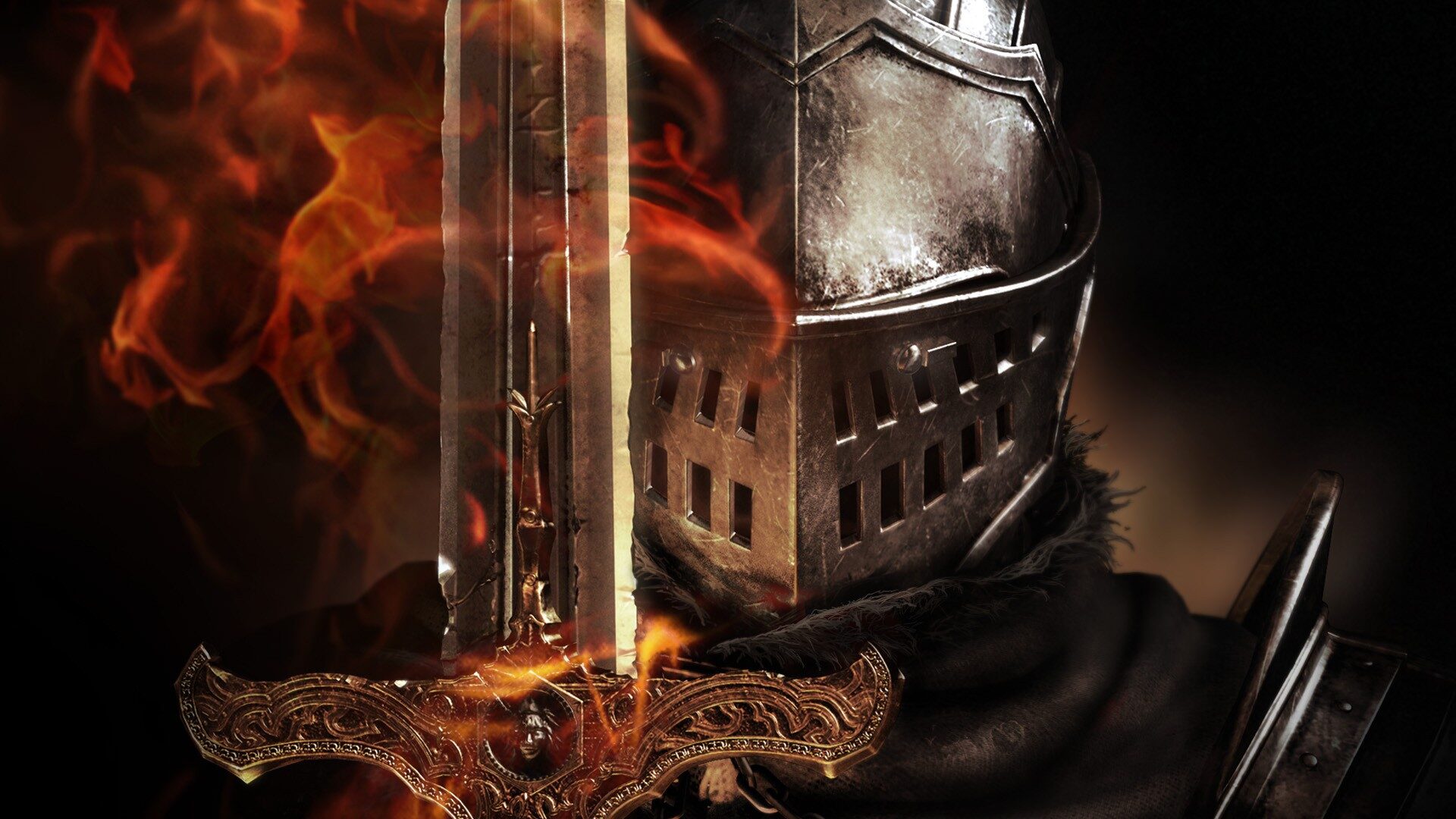Dark Souls Review
My Dark Souls character—Gwendolyn—cannot speak. If she could, at one particular moment in time, I know exactly what she’d have said.
“Please, just let me quit. I want to go home.”
As she stood there silent in the tall grass of the game’s starting area, her true reason for not soldiering on was that I had put down my controller in a much-needed moment of rest and reflection. As she looked out upon the craggy mountains that rose ominously in the distance—her body bruised and broken from the countless deaths that had befallen her that day—her resistance to delving deeper into the lands of Lordran came from physical exhaustion. Mine, though, came from a deeper, more mental and emotional place.
“Demon’s Souls is hard!”
We’ve all heard that, right? Even if you’ve never touched the game yourself, I’m sure you’ve come across that statement made somewhere in some way. The thing is, for those of us who became engrossed in all it had to offer, it wasn’t the difficulty of the game that we loved. Difficulty is a simple variable; it determines how many hit points a boss has or how much damage a sword does when stuck in your back. Demon’s Souls wasn’t difficult—it was threatening. Progression required players to actually improve and expand their skills. Death—so often little more than a stumbling block in other games—brought serious, dire consequences. It was a game where the very first foe you encountered could eviscerate you in seconds if you weren’t careful. Demon’s Souls wasn’t a game that wanted to provide you a challenge; it was a game that wanted nothing more than to make you give up.
Even more so than Demon’s Souls, Dark Souls is going to make many people want to do just that—a feeling I myself was awash in as Gwendolyn stood there in that rare moment of peace. For everything that Demon’s Souls threw at us as players, it still had structure, order. The Nexus was a sanctuary where we could take respite from the countless amounts of entities that wanted to provide us our end—and then, once we’d regained our composure, we could venture back out into battle where we wanted, how we wanted. In that small way, we still felt as if we had some control over our destinies.
In all that can and will be said about Dark Souls by both players and pundits, nothing about the game has so profoundly changed or evolved over its predecessor than the switch from that hub-based world to an open, interconnected one. That small sense of control we desperately grasped to is now gone, and the feeling we’re left with is one of utter despair. I didn’t want to quit because I wasn’t having fun; I wanted to quit because I just couldn’t take the terror that filled me at being dropped into this world, lost and alone, with not a single clue as to what I should be doing next. All that I’d learned in Demon’s Souls, all that I’d experienced—I thought those things had readied me for Dark Souls. And yet, here I was, feeling totally helpless and defeated.
But I didn’t quit. I took a deep breath, picked my controller back up, and led Gwendolyn on to her next victory. She’d die again—and again and again—but every time she did, she learned from her mistakes, as did I. We got stronger together—her physically, me emotionally and mentally. At times, we’d still succumb to fear or panic—yet at others, we’d feel stronger and braver as we stood triumphant over the monstrosity we’d just slain.
And that—more than bullet points or new combat abilities or framerates or voice acting—is what Dark Souls is about. It’s about being pushed to your breaking point, and losing what you’ve worked so hard to gain, and wanting to throw your controller in rage at your mistakes. And then, it’s about picking yourself back up, trying again, and tasting the sweet taste of victory that has truly been earned. It’s why Demon’s Souls was so beloved, and why Dark Souls will be even more so.
Dark Souls
Summary: Dark Souls pushes us to our breaking point as gamers—and then it gives us the opportunity to pick ourselves back up and show our worth.
Score: -
Dark Souls was reviewed using review code, physical copies, or hardware provided by Bandai Namco. Scores are graded on a scale of E (Bad) to S (Special) in homage to Japanese video game grading scales, with the understanding that an S still does not denote a "perfect" score. Scores may have been adjusted from the original source to better fit my personal scale.
